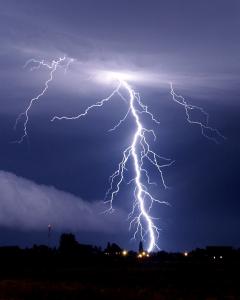 In one of the early Star Trek films, William Shatner’s character states that ‘how we look at death is at least as important as how we face life.” It’s a statement that continues to ring through my ears as I contemplate eternity and the concept of the afterlife. Because really, what’s so great about the afterlife? Isn’t what we have in the here and now most important? Perhaps it’s time we rethink this topic.
In one of the early Star Trek films, William Shatner’s character states that ‘how we look at death is at least as important as how we face life.” It’s a statement that continues to ring through my ears as I contemplate eternity and the concept of the afterlife. Because really, what’s so great about the afterlife? Isn’t what we have in the here and now most important? Perhaps it’s time we rethink this topic.
What scripture has to say
Let’s look at the whole of scripture. The Hebrew Bible has this concept of Sheol, the underworld, where disembodied souls might go after death. It’s not comparable to our notion of heaven in modern Christian theology. The earth was flat, there were the gods above, and Sheol was the world below.
Paul’s view of the Resurrection is to talk about resurrection bodies in 1 Corinthians 15, this after some of the early Christians have already died. Early Christians expected Christ’s literal second coming was immanent – and when that did not happen, it provoked a certain faith crisis within them.
Revelation 21-22 gives a vivid description of heaven as a walled-in city, noting gardens, streets of gold, and even dimensions of the ‘new heaven and new earth.’ If some of this seems a bit spectacular in modern terms to you, you may not be the only one.
Jesus and the ‘Kingdom of God’
What I still have to mention is this brilliant notion that is called the ‘Kingdom of God.’ This is the notion that all of the synoptic gospels (Matthew-Luke) are built and upon which Jesus preaches. Jesus is often quoted by saying ‘the Kingdom of God is here!’ or ‘the Kingdom of God is like…’ to begin a parable. Martin Luther King Jr. renamed this concept the ‘beloved community.’ Others in modern theology have renamed it the ‘kin-dom of God.’
So what did Jesus mean when he spoke of the Kingdom of God? Was it some otherworldly place, or does it have to do with the right here and right now? My argument is both. But mostly, the Kingdom of God was a radical call in Jesus’ own time for a reshaping of the social order of his own society – from his own religion to the Roman order that he lived under.
Furthermore, the Kingdom of God that Jesus speaks of is an invitation for us to create the world that Jesus spoke of. Methodist theologian Georgia Harkness writes in Understanding the Kingdom of God “I believe in the essential greatness of man, in a Christian social gospel which calls us to action as co-workers with God in the redemptive process, in a kingdom which will come in this world by growth as Christians accept responsibility in the spirit of the cross.”
It is through Christian growth and discipleship that the Kingdom of God is grown and experienced on earth, as it is in heaven. The Bible has very little to say about an afterlife, and much of it is contradictory. What it actually has much to say about is the world here – it’s events, leaders, politics and people. To this I ponder if there is an existential heaven and I already have concluded based upon my best scholarship that hell is a concept that needs to go away.
Conclusions
I’m not a neurosurgeon that works with the brain. Perhaps they can tell you a bit more about consciousness after the brain ceases to function. Neither am I a physicist who can tell you about other realms where other worldlike existence is possible. I’m am a theologian and I am starting to approach the afterlife as a mystery. To approach death with as much seriousness as life.
Perhaps the point of eternity is not to have constant singing, praising and adoration of the divine. Perhaps the mystery unfolding in our own lives here and now is found in meaningful action, contemplation, study, caring for our children, elders and marginalized. This would be more in the spectrum of what Christ taught about the Kingdom.
I do believe there is something beyond this world that God has prepared for us and for all creation but may is keeping us in waiting to find out what that is and will be. Perhaps the resurrection of Christ itself and his victory over oppression and sin is our only clue. The best we can do right now is to create the Kingdom of God as much in our own world, one day at a time, as it reigns is in God’s mysterious unknown realm.












